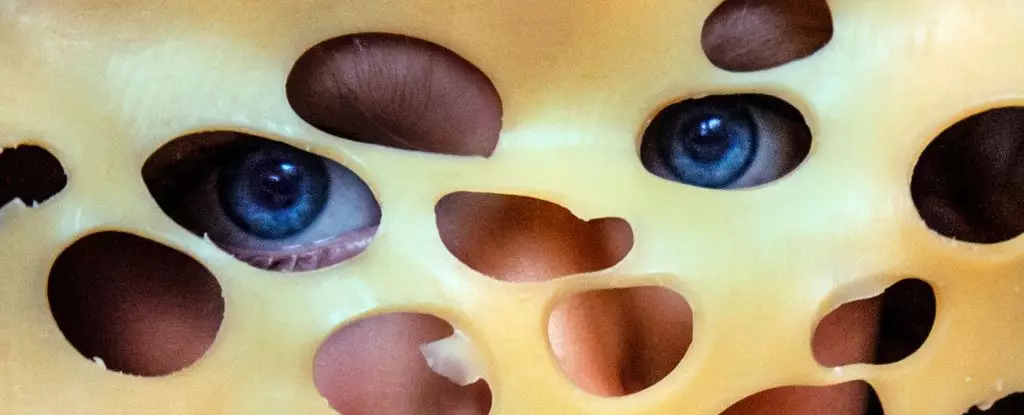For generations, countless individuals have instinctively associated certain foods—particularly dairy and sweets—with bizarre, vivid, or disturbing dreams. Often dismissed as mere coincidence, these claims have lacked scientific backing, fueling skepticism and reinforcing the notion that food and sleep are unrelated domains. However, recent research begins to unravel the complex and often overlooked connection between what we consume and the quality and content of our dreams. This emerging body of evidence pushes us to rethink the simplistic narrative that diet only affects our physical health, exposing a profound influence on our subconscious worlds.
This evolving understanding demands a more nuanced perspective, recognizing that our choices around eating habits may shape not just our bodies but also our inner nocturnal experiences. The implications stretch far beyond mere anecdotal reports; they call into question the very foundation of sleep hygiene practices and the ways we approach diet as a holistic health strategy. If certain foods can derail restful sleep or inspire nightmares, then the ubiquity of processed foods, sugar-laden snacks, and dairy in modern diets could be subtly sabotaging our psychological well-being—often without our conscious awareness.
The Scientific Revelation and Its Limitations
Recent investigations, such as the comprehensive study led by Taraneh Nielsen at the University of Montreal, offer compelling insights into this phenomenon. By surveying over a thousand university students, researchers uncovered correlations between food habits and dreams, including the intriguing role of lactose intolerance and food allergies. What stands out isn’t just the statistical relationships but the broader implication that bodily discomfort—gas, stomach pain, discomfort—may spill over into the dreamscape, disrupting sleep cycles and fostering nightmares.
While these findings are promising, they are far from definitive. The reliance on self-reported data introduces significant bias, particularly in a homogeneous sample of young, educated individuals. The study paints a compelling picture but stops short of establishing causality. As with all pioneering research, skepticism remains essential. These results raise critical questions: Are certain foods genuinely causing vivid or disturbing dreams, or do they merely alter our perception of them? Is there an intrinsic neurochemical pathway, or are psychological associations influencing our memories of dreams?
Therefore, the urgency for more rigorous, controlled experimental studies cannot be overstated. Only through such efforts can we move beyond anecdotal correlations to a scientifically validated understanding of how dietary choices influence sleep architecture and dream content.
The Cultural and Psychological Dimensions
Beyond the raw data, this area of study invites reflection on broader cultural and psychological considerations. Society often simplifies sleep problems by blaming stress or mental health issues, neglecting the subtle yet significant impact of dietary patterns. Many individuals, in their quest for better sleep, overlook their evening intake or dismiss the discomfort caused by food sensitivities as minor inconveniences. But what if these “minor inconveniences” are actually silent saboteurs—shaping our dreams and, by extension, our emotional and psychological health?
Furthermore, the study hints at a social tendency to blame indulgent foods, especially sweets and dairy, for negative dreams. This blame game might mask deeper issues: emotional regulation, dietary habits, and lifestyle choices. The acknowledgment that healthier eating may lead to better dream recall and fewer nightmares challenges us to reevaluate our approach to wellbeing. It underscores the interconnectedness of physical health, mental health, and subconscious experiences—a triad often fragmented in modern healthcare.
Implementing dietary changes as a tool for improving sleep quality and dream experiences aligns with a center-left liberal perspective that champions holistic health and scientific curiosity. It encourages individuals to take responsibility for their health in a nuanced, informed manner rather than relying solely on medication or quick fixes. Instead, embracing dietary mindfulness and recognizing the profound, though often invisible, impact of food choices can empower us to foster better mental clarity, emotional stability, and sleep resilience.
The Road Ahead: A Call for Personal and Societal Reflection
As this research continues to evolve, it compels us to question how much control we truly have over our subconscious worlds. Are our nightly dreams, often dismissed as random mind estimates, a reflection of our physical states—our foods, our habits? The possibility that simple dietary modifications can influence dreams and nightmares suggests a powerful, underrated avenue for self-improvement.
However, it also prompts a deeper societal dialogue. We must challenge the food industry’s influence on our well-being, scrutinize nutritional misconceptions, and prioritize scientific inquiry over sensationalism. Recognizing the subtle but potent role of diet in shaping our sleep and dreams pushes us towards a more mindful, balanced lifestyle. It encourages us to view food as a fundamental aspect of mental health—an everyday tool for cultivating a more peaceful, restorative sleep environment instead of a source of subconscious chaos.



Leave a Reply